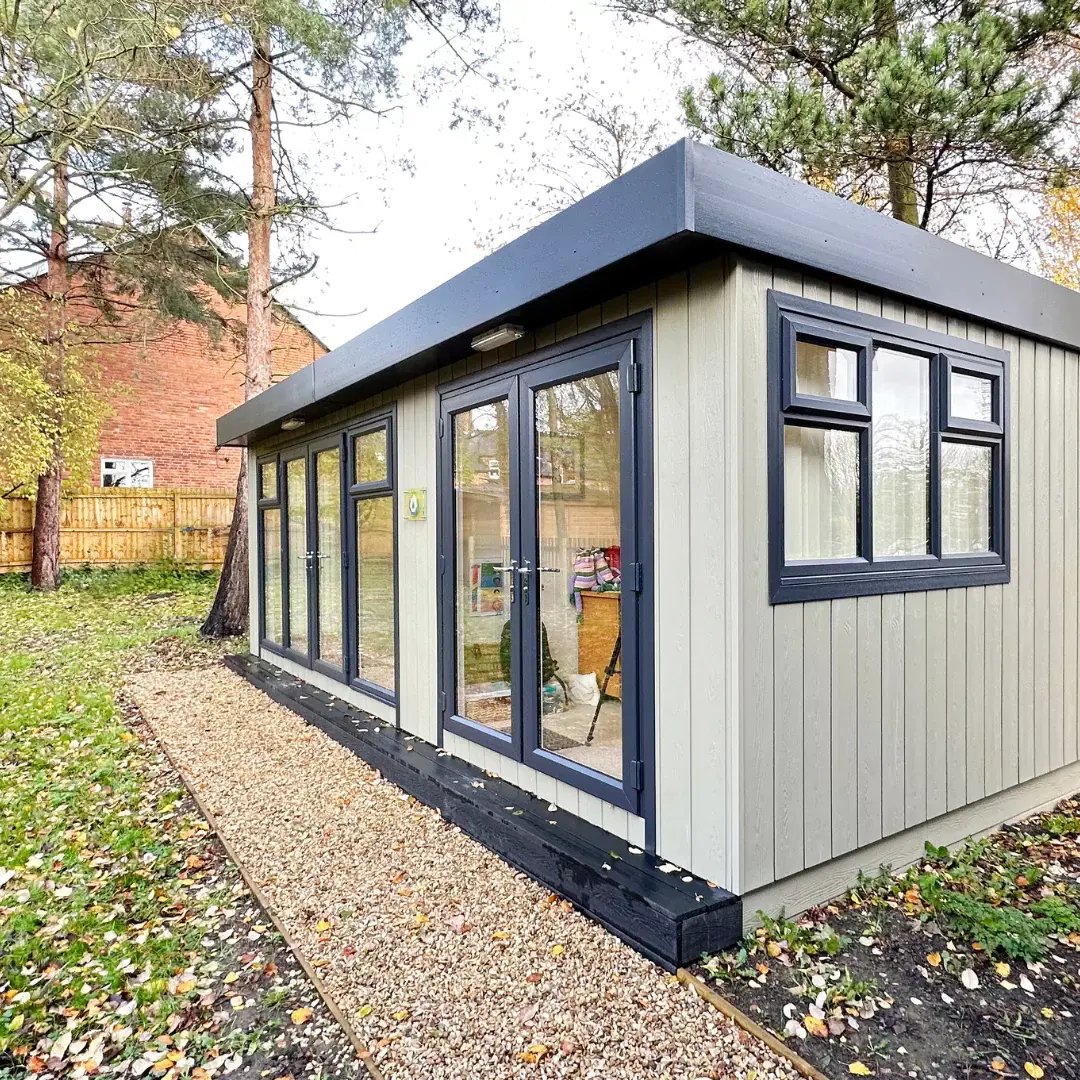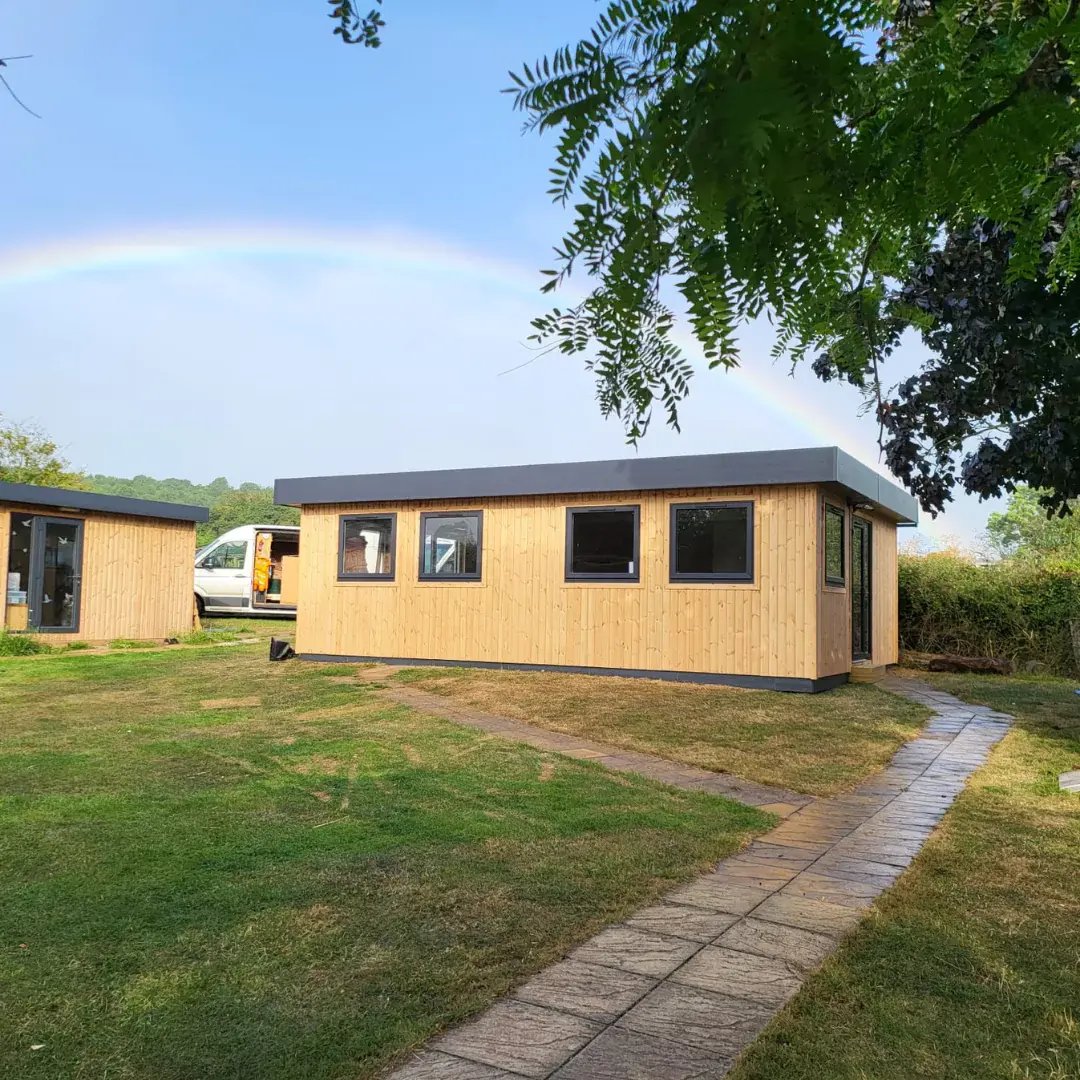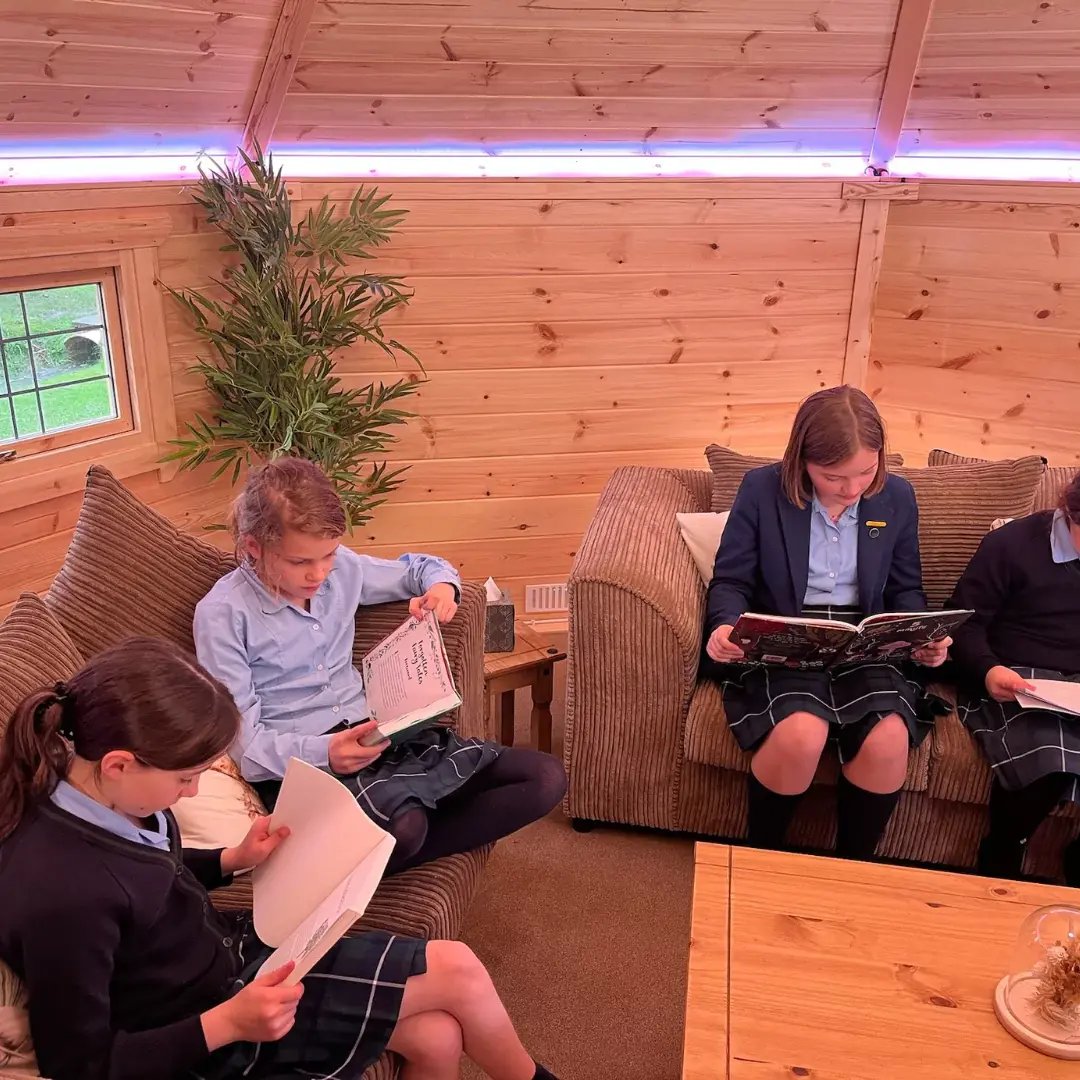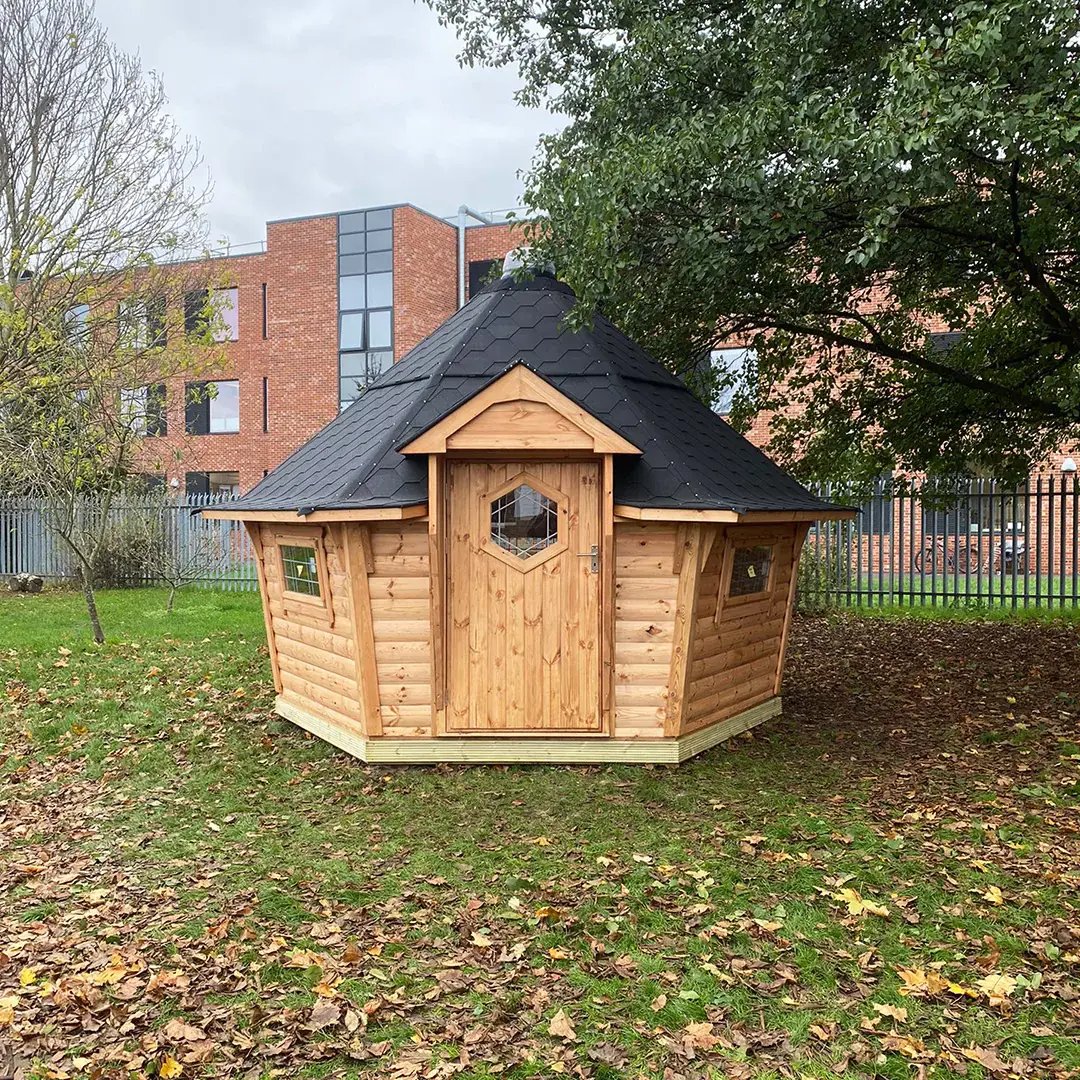Is your school ready to expand but in need of extra funding? You have options to explore! Here’s how you can find the necessary resources to make your school’s expansion project a reality...
Grants to Support Outdoor Learning for Secondary School Children (UK)
.webp?width=1080&height=1080&name=allesley%20web%20%20squares%20(1).webp)
Grants of £1,000 are available to UK state-funded secondary schools and special schools that work with secondary-age children to support outdoor learning opportunities for their pupils. The funding is being made available through the Ernest Cook Trust’s Outdoor Essentials Grant scheme, which will support the following:
• School grounds improvements, and to purchase outdoor learning resources that engage young people with the environment such as bug hotels, bird boxes and mini-beast investigation kits
• Transport costs to outdoor learning venues - including outdoor learning centres, forest schools, countryside parks, woodlands, national parks, farm parks, farms, coastal areas and beaches
• Outdoor clothing.
This current round of the Outdoor Essentials Grant is only available to Secondary Schools and Special Schools who work with Secondary age children located within the following prefixes:
• Cumbria/Lancashire: BB, CA, FY, LA, PR
Glos/Wilts/Avon: GL, SN, BS, BA20, BA21, BA22
Leicestershire: LE
2025–26 School Capital Funding in Wales
.webp?width=2000&name=Cabins%20for%20Schools%207.5m%20x%204.0m%20Marley%20-%20Broadway%20Primary%20School_5%20(2).webp)
Welsh local authorities can access capital funding for:
- Expanding schools where pupil numbers are rising
- Creating inclusive spaces for SEND and wellbeing
- Supporting wraparound childcare and early years provision
- Developing community-led hubs or multiagency support spaces
-
- Replacing poor quality school buildings and inefficient educational infrastructure
We understand that funding decisions lie with local authorities, but schools that present a clear, achievable plan can influence those priorities. That’s where we come in. Talk to us today — we can help you make the most of 2025–26 funding before the window closes.
Funding for Projects that Teach Children about the Countryside (England and Wales)

Charities, not-for-profit organisations and schools exclusively for children with additional needs in England and Wales can apply for grants of up to £5,000 for projects that help disabled or disadvantaged children connect with nature and the countryside. The funding, which is made available through the CLA Charitable Trust, supports projects that improve the physical and mental health and wellbeing of people who are disabled or disadvantaged by helping them to visit and participate in recreational and educational opportunities in the countryside. Applications are particularly welcomed for projects for children and young people, disadvantaged financially, physically, mentally, or from areas of deprivation. Projects supported in the past include funding for outdoor classrooms, forest school provisions, horticulture areas within school grounds. Applications can be submitted at any time.
Funding Available for Educational and Environmental Initiatives in the National Forest (Leicestershire, Derbyshire and Staffordshire)

Grants of between £500 and £10,000 are available to support projects that inspire creativity, enhance community engagement, and promote sustainable business practices within the National Forest. The funding which is being made available through the National Forest Company’s Small Grants programme. Eligible projects include outdoor educational programs, creative community initiatives, volunteer-driven woodland management, health and wellbeing activities related to the forest, and efforts to improve accessibility to green spaces. Small enterprises with 50 or fewer employees, especially those focusing on innovation and reducing carbon footprints, are encouraged to apply. Applications can be submitted at any time.
SEN Inclusion Funding (SENIF)

Every local authority must have a SEN inclusion fund (SENIF) to support early years providers in meeting the needs of individual children with SEN. Special Education Needs Inclusion Funding can be requested by private, voluntary and independent (PVI) pre-school settings, maintained nursery settings, registered childminders and registered out of school providers (where the Free Early Education Entitlement (FEEE) is accessed).
All SENIF requests should be completed via your Local Authority's SENIF request form.
Funding for Projects that Address Severe Learning Disabilities (UK)
.jpg?width=1080&height=1080&name=Untitled%20design%20(85).jpg)
UK Schools, PTAs and charities can apply for grants to help children and adults with severe learning difficulties, including autism. The funding is being made available through the Baily Thomas General grants programme and can be used to purchase equipment, support capital works, and cover project and core costs. Previous grants have been used to support:
- capital building/renovation/refurbishment works for residential, nursing and respite care, and schools
- employment schemes including woodwork, crafts, printing and horticulture
- play schemes and play therapy schemes
- day and social activities centres including building costs and running costs
- support for families, including respite schemes
- independent living schemes
- support in the community schemes
- Snoezelen rooms
Funding for Projects that Promote a Better Understanding of the Environment and Countryside (UK)
.jpg?width=1080&height=1080&name=Untitled%20design%20(86).jpg)
UK based schools and not for profit organisations can apply for funding to the Nineveh Charitable Trust for a broad range of projects and activities that promote a better understanding of the environment and countryside, whilst facilitating improved access, education and research.
Whilst the Trust does not specify a minimum or maximum grant amount that can be applied for, an analysis of previous grants would suggest a maximum of £5,000 per year for up to three years.
Government Grants

Government bodies at both local and national levels often provide grants specifically aimed at improving school infrastructure, expanding facilities, or promoting outdoor learning. Some options include:
Department for Education (DfE) Funding: In the UK, for instance, the DfE provides capital funding programs like the Condition Improvement Fund (CIF), which helps academies and smaller schools improve their facilities.
Environmental Grants: If you’re planning to incorporate eco-friendly or sustainable designs into your expansion, there are environmental grants aimed at promoting green spaces and energy-efficient buildings.
Research and apply for these grants to cover part or all of the construction costs for your expansion.
Fundraising Campaigns

Crowdfunding: Utilise online platforms like GoFundMe or JustGiving to reach a wider audience. Share the story of your school’s vision for expansion and ask for donations from alumni, parents, and the broader community.
Alumni Support: Reach out to former students and their families who may be willing to contribute to the school’s growth.
Partnerships and Sponsorships

Partnering with local businesses or larger corporations can be a highly effective way to secure funding for your expansion project. Here’s how:
Corporate Sponsorships: Businesses might be willing to sponsor parts of your project, especially if they gain positive publicity or fulfill corporate social responsibility (CSR) goals. In exchange, you can offer to display their logos on your school’s website, newsletters, or at school events.
Local Business Partnerships: Establish relationships with businesses that have ties to education or the local community. They may be willing to donate materials, funds, or services, which can help reduce your costs.
Non-Profit and Charity Support: Some educational foundations and charities offer funding for specific projects like outdoor classrooms or facilities that promote inclusive learning.
Building strategic partnerships can provide long-term benefits beyond just funding, including mentorship opportunities and community engagement.
Capital Investment Funding

Many educational trusts and foundations offer capital investment programs to schools, particularly for projects that align with their missions, such as improving access to education or creating sustainable learning environments. Some options include:
Academy Trust Funds: If your school is part of an academy trust, there may be internal funding available for expanding facilities or improving infrastructure.
Educational Charities: Charities like The Wolfson Foundation in the UK provide grants for school building projects, particularly for science labs, libraries, and spaces that support the arts.
Capital investment programs are usually competitive, but they can provide substantial financial support if your project aligns with the criteria.
PTA Support

Your Parent-Teacher Association (PTA) is a valuable resource for funding and organising community support. The PTA can
Help organise events such as bake sales, car boot sales, or school discos, which can raise money for the expansion.
Apply for local small-grant programs to cover minor costs, such as outdoor seating or landscaping for new outdoor classrooms.
The PTA’s ability to rally the parent community means they can play a key role in reaching your funding goals.
The PTA at Farlington School had a huge part to play in the making of their Wellbeing Centre. Find out more
Local Authority Support

Depending on your location, your local authority may provide support for school expansion projects. Some local governments allocate funds to help schools accommodate growing student populations or improve learning environments. Reach out to your local authority to inquire about potential financial support.
Further Funding Resources
There is plenty of information online about grants and the funding available to help with school investments. Two regularly updated sources are:
Schools and Colleges - News - Grants Online
Grants 4 Schools is a comprehensive funding information service available to the UK education sector. They highlight the latest grants available to primary, secondary, colleges, independent and free schools. Make sure to check it out to find grants specific to your project.
Pebble will help schools and colleges to acquire funding. They are considered the leaders in income generation for schools and academies.
By exploring a combination of these funding avenues, you can create a comprehensive strategy to secure the necessary resources for your school’s expansion. Whether through grants, fundraising, partnerships, or loans, you can make your vision a reality and ensure your school has the space and facilities needed to support its students effectively.
How to write a successful funding bid/grant bid
Research
The successful grant bids are the ones which have been considered in great detail. You should do your research into both your project to gather evidence and statistics to support your case, as well as into the funding organisation which you’re applying for a grant from. This will help you to better understand their goals and priorities when granting funds. Take the time to thoroughly assess your options and select the right grant to support your project. Make sure you understand the funding organisation’s priorities and that your project is eligible before you begin.
Planning
While there are things which would be lovely to have at your school, these lovely extras rarely get accepted for grant funding. Your project should aim to solve a current problem in your educational setting. Planning ahead can really help you to consider the issue you’re trying to solve and how receiving the grant to fund your project will provide the solution. Do remember to be specific and think about your institution, rather than about vague or generalised issues within the education sector as a whole.
One of the most essential things to remember is to highlight the positive impact that your project will have on your students, staff and the community. Your chosen funding organisation will want to know how their donation will make a difference to people’s lives, so really take the time to think about how the lives of those involved will be improved. What skills will your students develop? How will your project improve access to new experiences? What new opportunities will it create for your school?
Tell the Story
Don’t assume that the funding organisation already knows about your school/nursery! You should provide them with all of the necessary information about your institution and it’s context. It might help you to think about approaching it as ‘telling the story’ of your school and why their grant will help to solve the existing issue at your school. To support your story, you can include photos, statements of support, testimonials, graphs, case studies, etc.
Define your project & budget
Be concise and specific when outlining your project. State your objectives and expected outcomes and describe how your project aligns with the funding organisation’s overall mission. Remember to provide a clear and considered budget, as it will show funders that you have thought about all aspects of the project carefully. Be transparent about both income and expenditure with a breakdown of how the funding will be used.
Focus on the outcome
The successful funding bids focus on the outcomes, not on the resources their institutions need to achieve such outcomes. Essentially, you should write about the impact that your project will have and the difference it will make. If for example you are applying for funding for one of our log cabins, you might wish to detail how you can implement accessible forest school or outdoor learning experiences to improve access to opportunities for certain students, rather than just stating that your grant will provide funding for a new log cabin.
Talk about your successes
You want to establish credibility. You can do this by showcasing your school’s previous successful projects or initiatives, no matter how small scale they are! Use case studies or testimonials to show the funding organisation the positive impact that your previous projects have had. This will hopefully prove that you can deliver on your promises, which ultimately is something they will be looking to confirm before awarding a grant.
Show how you have involved your beneficiaries
Demonstrate how you have involved the students and staff in the development of your project, such as consulting them in decisions throughout the process. Give your students a say and show this! We’ve heard from schools having class votes or brainstorming activities in the early stages of their projects. You want to improve your institution and solve an existing issue, so make your beneficiaries a part of the process.
Links to the community
It’s a good idea to highlight the ways in which your project involves groups other than your pupils, such as the parents or local community organisations. Additionally, grant funders tend to look more favourably on applications from schools that can demonstrate a coordinated approach to fundraising. So, get involved with your community and try some fundraising activities or initiatives to garner part of the project costs. Show what you’re doing to make it possible!
Request a Pricing Guide

